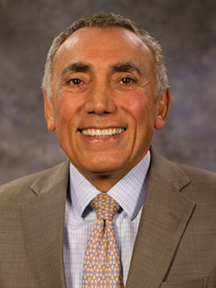"Nearly all men can stand adversity, but if you want to test a man's character, give him power," said Abraham Lincoln. So then, as a world-power, what does our response to the current massive waves of migration say about our character as Americans?
With 4 million Syrian refugees trying to find safety in other countries (and another 7.5 million displaced within Syria), nations worldwide are asking themselves how they can, and should, respond.
Only about 1,500 Syrian refugees have been admitted to the United States since the start of the conflict in 2011, the vast majority of them this fiscal year. Officials said the U.S. hopes to take more next year, potentially in the low thousands. In comparison, Canada has so far accepted about 2,400 Syrian refugees, with conservative promises of another 10,000 every year for the next four years. Sweden has taken in the most refugees per capita in the E.U., at around 85,000 this year alone.
Canadian Lt.-Gen. (ret.) Romeo Dallaire, the UN Force Commander in Rwanda during the genocide that saw an estimated 1 million people killed in just 100 days, has many thoughts on the West's response to the current refugee crisis from Syria. "If a country like Sweden can take in 100,000, then we've got some real serious problems with our philosophy and what we believe in our values of humanity and sense of humanity."
Human rights advocates supported the call. "It's just unconscionable how few Syrian refugees the United States has been willing to take and there's no good excuse for this," said Kenneth Roth, executive director of Human Rights Watch. "The idea that every Syrian is a terrorist is absurd."
As a nation this is not the first, second, or even third time we find ourselves faced with a massive wave of refugee migration. All told, by some estimates, a total of about 60 million Europeans became refugees during the entire World War II period. By 1959 some 461,000 European refugees had been accepted by the US.
The international response to that refugee crisis took both legal and organisational form. The Universal Declaration of Human Rights of 1948 guaranteed a '... right to seek and to enjoy in other countries asylum from persecution', and forbade the arbitrary deprivation of nationality. The Geneva Convention on Refugees of 1951 defined refugees, accorded them specific rights, and prohibited their refoulement (or forcible return) from countries of refuge. In the US, in 1948 the Displaced Persons Act, primarily inspired by anti-Communism, finally led to a relaxation of US immigration policy. The US Escapee Program was established in the same year, and offered sanctuary to a limited number of refugees from Communist countries.
The next major wave to the US started in 1975 after the fall of Saigon. The international community initially didn't provide support for the Vietnamese boat refugees. Large vessels refused to pick up the refugees, uncertain of their participation in an international political and military entanglement. Eventually over one million Vietnamese "boat people" were resettled, including 823,000 in the US, 137,000 each in Australia and Canada, 96,000 in France, and 19,000 each in the UK and Germany.
(Note: You can view every article as one long page if you sign up as an Advocate Member, or higher).






